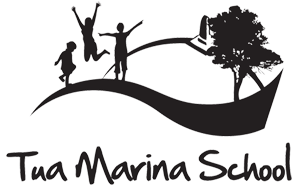In The Arts, students explore, refine, and communicate ideas as they connect thinking, imagination, senses, and feelings to create works and respond to the works of others.
Beliefs
We believe that students should be provided with a range of experiences which enable them to creatively express themselves using movement, sound, and/or image, and to learn to value the arts.
Learning Goals
Through our teaching and learning programmes our students should:
- Explore, challenge, affirm, and celebrate unique artistic expressions of self, community, and culture.
- Embrace toi Māori, valuing the forms and practices of customary and contemporary Māori performing, musical, and visual arts.
- Be stimulated into creative action and response by engaging and connecting thinking, imagination, senses, and feelings.
- Express and interpret ideas within creative, aesthetic, and technological frameworks
- Learn to work both independently and collaboratively to construct meanings, produce works, and respond to and value others’ contributions.
- Use imagination and take risks.
- Learn about and develop skills in the four disciplines (dance, drama, music – sound arts, and visual arts), through the four interrelated strands:
- Understanding the Arts in Context,
- Developing Practical Knowledge in the Arts,
- Developing Ideas in the Arts,
- Communicating and Interpreting in the Arts.
Teaching and Learning Guidelines
Our teaching and learning programmes will:
- Integrate the arts through all curriculum areas
- Provide meaningful contexts
- Reflect the Tua Marina Long Term Plan
- Allow time to teach specific skills and techniques
- Model the use of technical language and practical techniques
- Link to key competencies, principles and values
- Consider the learning environment – intellectual, emotional, physical, and cultural engagement
- Use a variety of teaching strategies
- Incorporate ICT and Thinking Skills when appropriate
- Make use of staff/student strengths and community expertise
- Provide opportunities for students through: choir, Kapahaka, dance – end of year assembly, Jump Jam, etc, class and school productions, exhibitions, Marlborough Arts Festival, guitar lessons, extension programmes, etc.
Planning
- The New Zealand Curriculum will provide the basis for the teaching and learning programmes.
- Refer to MOE resources when planning e.g. TKI
- Planning will follow a coherent pathway from curriculum plans to long term plans to unit or weekly planning to teaching and learning
- Assessment data and information about students will be used to determine the teaching & learning programme.
Assessment
Information on student achievement will be gathered and analysed through a range of assessment practices e.g. rubrics, self/peer assessment, observation, NEMP tasks, etc.


